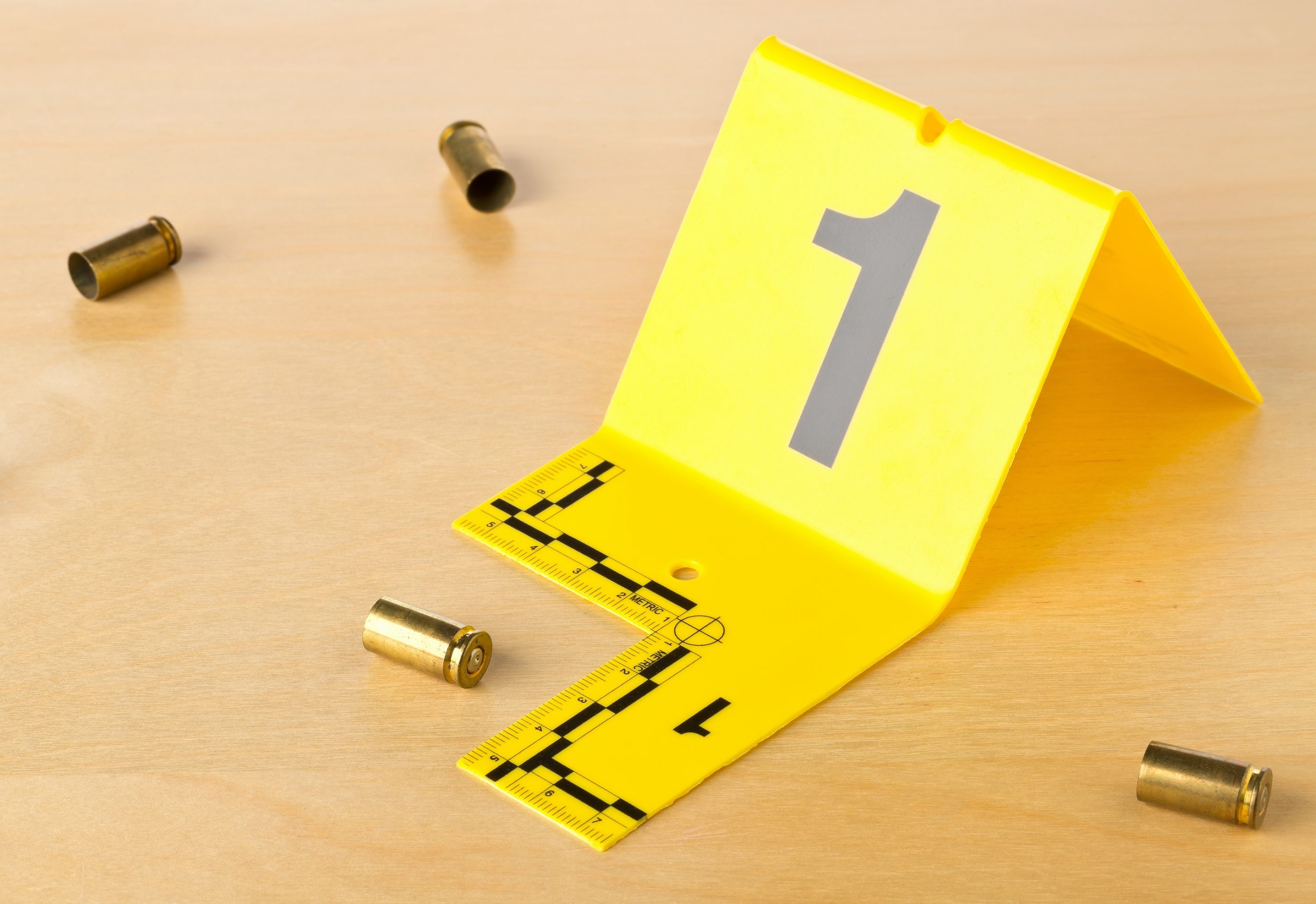
Prudent people pack a gun so they’re harder to kill. At the same time you need to know the law so you’re harder to convict in the aftermath of a defensive gun use. In so many words, that’s the advice offered by famed self-defense attorney Andrew Branca and it’s both pithy and priceless.
Do you have a post-incident plan for the aftermath of a use-of-force incident, or something approaching it? You’d better. You don’t want to avoid serious injury or death at the hands of a violent criminal only to find yourself victimized by a Soros-funded “progressive” prosecutor and the full force of the criminal justice system.
What should you say to police? In short, not very much.
If you’re not sure what to say, just say you were in fear for your life and that you want to talk to an attorney before answering questions. Expect to get handcuffed and you may even have to spend the night in the local lockup. Embrace the suck, buttercup. It’s far better to spend a night in the county jail than the next twenty years in prison.
Repeating, if you’re unsure of what to say, don’t say anything. Don’t answer questions from the police. Nothing you say can be used at trial to exonerate you. But everything you say can and will be used against you. As an attorney friend once said, everyone has the right to remain silent, but few people can actually do it.
Sure, by all means you can answer questions like the basics; your name, date of birth and address. Beyond that? “I was in fear for my life and want to speak with my attorney before I give any statements or answer any questions.”
Make that your mantra, even if you believe it was a perfectly clear-cut case of self-defense.
Even if you were attacked and stabbed 19 times on your own front lawn by a knife-wielding lunatic.
Remember, not all cops and prosecutors are big fans of gun owners or the right to armed self-defense. Shocker, right? Some Soros-funded prosecutors are far more on the side of violent criminals than their victims.
If you can remember what to tell responding officers, however, there may be something even better than simply asking for an attorney.
Massad Ayoob’s five-point plan from his Lethal Force Institute classes (now the Massad Ayoob Group) is hard to beat. It offers officers a better picture of what happened on your terms, identifies evidence that cops might miss, identifies witnesses and acknowledges your willingness to cooperate…but only after you talk to an attorney.
It sets the tone of the investigation. Again, it helps ensure that relevant and exculpatory evidence is discovered and logged. It preserves your rights and protects exculpatory evidence from “disappearing” or not being discovered.
I’m such a believer in this strategy, it’s what I’ve taught for twenty-five years as an instructor. Here’s the quick and dirty:
- PLAY THE VICTIM: Claim your role as the victim to responding and investigating officers. Example: “That guy was trying to rob the place! I thought he was going to kill the clerk/those people/us.”
- TELL COPS YOU’LL COOPERATE WITH THE PROSECUTION OF THE OFFENDER: “I’m happy to cooperate with the prosecution of the bad guy if he survives.”
- IDENTIFY THE EVIDENCE: Point out any evidence at the scene. Identify for the officers all relevant items. Police aren’t all-knowing and they might miss important evidence that could help in your exoneration. If the bad guy had a partner who ran away, provide a description. Investigators can and do miss physical evidence, shell casings can blow away or get caught in boot soles, or witnesses may scoop up souvenirs.
- POINT OUT WITNESSES: Identify any witnesses who oftentimes come down with a case of “I didn’t see nuttin'” when asked by police for a statement.
- I NEED TO SPEAK TO MY ATTORNEY: Ask to talk to a defense attorney before giving a statement or answering any questions. Yes, it’s okay to tell cops your name, address and date of birth without Clarence Darrow at your side. But questions about what happened, what you saw, or how you perceive what happened? Nope. Repeat after me: “I’ll be happy to answer after I’ve talked to my attorney.”
Here’s how it might go. You’re leaving Walmart when a perp appears between you and your car after you took the cart to the cart corral. He’s sporting a nice folding knife with the pointy-end directed at you. He tells you he’ll take the keys, your wallet, and your phone. You reach for your “wallet,” a Colt Series 80 1911A1. You draw, move off the “X” and introduce him to a controlled pair of Speer G2 hollowpoints in a nice, tight group. Given his agonal breathing, you’ve probably ended his aspiring career as a knife-wielding car thief.
The cops show up a few minutes later and secure the scene. You’ve holstered up well before police arrive for your own safety. Witnesses have identified you as the shooter. The cops put you in handcuffs, then start asking questions.
“Officer, that guy pulled a knife and tried to carjack me. If he survives, I’ll happily cooperate with his prosecution. His blade is over there. Those people may have seen what happened. I would be happy to answer questions and make a statement, but I want my attorney present before I do so.”
Marty Hayes, from the Armed Citizens’ Legal Defense Network added his thoughts on this very matter in his article, “You Have The Right To Remain Silent” . . .
First, don’t act like a guilty man or woman. When the first words out of your mouth are, “I want my lawyer,” you have done a surprisingly good imitation of a street-wise criminal. What is any self-respecting cop supposed to think? Dead body + gun + “I want my lawyer” = jail.
If, on the other hand, the officer hears, “My life was threatened, I had to shoot,” he forms a slightly different picture. In addition, if he first learned of the incident by a call from you to 9-1-1, and at that time you indicated that you were the victim of a robbery (or whatever crime caused you to believe your life was in danger) then he forms a different picture of the call before he even gets there.
Indeed.
As an side, I highly recommend that Armed Citizens Legal Defense Network. I’ve been a member for well over ten years. Fair disclosure: My endorsements aren’t for sale. I don’t get any compensation or kickbacks for recommending them.
You can do a lot worse than asking for an attorney when police start asking questions. You can do better, though, if you can remember those aforementioned points: play the victim, express a willingness to cooperate, point out the evidence and witnesses, and then ask for an attorney before answering questions.
What about the ambulance ride?
A lot of folks talk about asking for an ambulance ride. Some even suggest telling the police you feel like you’re having a heart attack.
Unless you really think you’re having a heart attack, don’t claim you are. Investigators will seize upon fabricated claims of a heart attack as a sign that you’re unreliable or, worse yet, downright deceptive. In plain English: they’ll think you’re a liar.
At the same time, unless you’re acclimated to shooting bad guys on a regular basis, you may also need an ambulance ride to the emergency room to get checked out. Don’t lie and claim you’re feeling like you’re having a heart attack. Articulate how you feel and ask for an ambulance.
How will you feel? I’ve never shot anyone, but I did go for a parachute jump for my 50th birthday. After my wife made sure she paid up my life insurance, she put me on a plane. At 13,600 I looked out the door and jumped with a seasoned instructor on my back.
It took probably five, maybe six minutes to reach terra firma for a fantastic landing. Less than twenty minutes after that, I struggled to remain standing after the adrenaline wore off.
You may experience something akin to that after a defensive gun use. Protect yourself. Take the ride and get your blood pressure checked. They’ll do a patient assessment to make sure you don’t have any injuries you don’t even realize you have. The ER staff will also take your blood and do a tox screen. That’ll look extra good for your state of mind assuming you’re sober.
Lastly, spend a few bucks and get some sort of legal defense policy. They will provide top-notch legal defense services at no charge in a defensive use of force incident. You don’t even have to use a gun. If you use empty handed tactics or a blade or your wife’s Buick, they’ll cover you in a righteous self-defense incident.
My three top choices/recommendations are Armed Citizens Legal Defense Network (I’m a member), US Law Shield and US Concealed Carry Association. All three have their pros and cons. Look into them and find the one that’s best for you.
Regardless where you get your coverage, get some. Today. Unless, of course, you’re independently wealthy and have a $100,000 or more in liquid assets sitting in an account that you’re just aching to give to a criminal defense attorney.
The bottom line: think about what you will say to police in the aftermath of any use of force incident. Thin about it before anything happens. Don’t get caught flat-footed and say something that will later be used against you in court…criminal or civil.
Carry your gun so you’re harder to kill. Know the law and what to say after a defensive gun use so you’re harder to convict.
